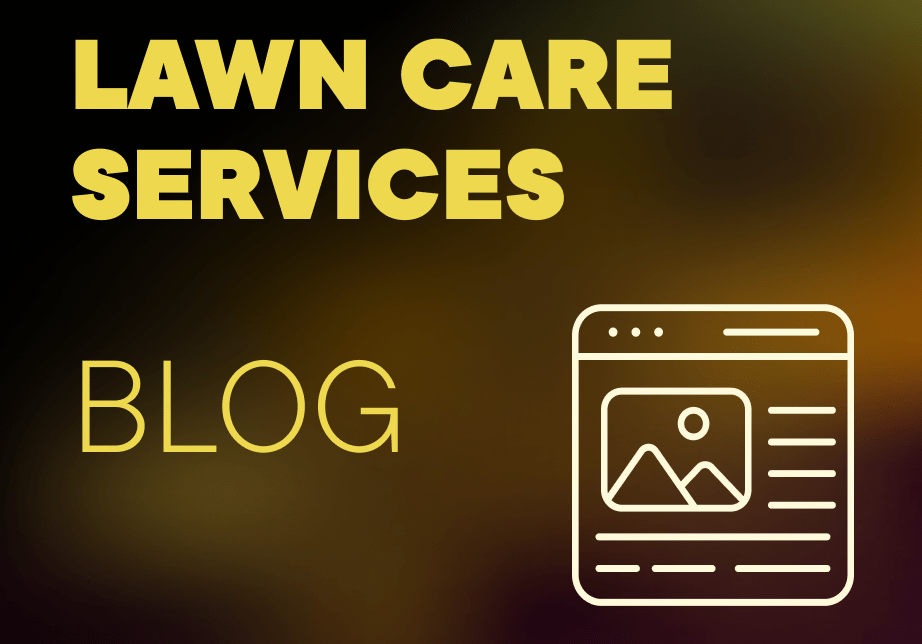
Lawn Care SEO: How to Generate Leads and Landscaping Clients Fast
As a lawn care and landscaping specialist, your work makes homes more beautiful…..
How do you build and manage your online reputation?
If you don’t know where to start or you have questions, Book a Free Consultation with Scott Keever with Scott today.
Do prospects and customers trust your business?
If you think they do, when was the last time you checked your reputation online. Seriously, does it even matter to you?
You put a lot of effort into marketing, you provide great customer service but you’re concerned as to why most of your customers and clients don’t buy from you over and over again.
Something is amiss. Perhaps they’re reading some ugly news about your business on Facebook, Twitter, Social media, or blogs.
Achieving a great reputation online boils down to listening and helping your customers — then they’ll be motivated to spread the good news about your business.
In the words of Mark Bonchek of the Harvard Business Review:
“Where traditional brands focus on positioning their brands in the minds of their customers, digital brands focus on positioning their brands in the lives of their customers. Furthermore, they engage customers more as users than as buyers, shifting their investments from pre-purchase promotion and sales to post-purchase renewal and advocacy.”
That said, do you know what potential customers read and hear about your business online?
Online reputation management is a way to control the narrative about your business online.

People say a lot of things about your business. You need to be sure these are the messages you want the public to see.
Because many people now go online to carry out research before engaging with a business. Whatever they read, whether positive or negative, will be the impression they form about your business.
Many people even buy online. According to Pew Research, about 8 in 10 Americans are online shoppers and 15% buy online on a weekly basis.
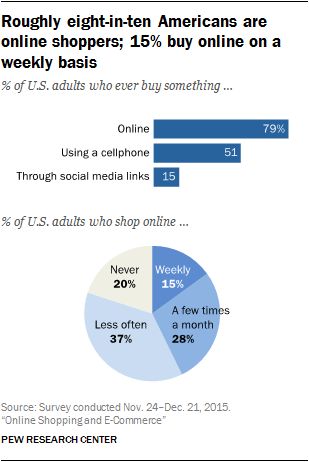
If you’ve been in business for a long time, there’ll always be both positive and negative comments about your business.
How do you exploit the positive comments and how do you mitigate the negative comments?
This is what online reputation management is about. It helps to present your business as the right option for your potential customers.
In this guide, I’ll show you platforms that influence your online reputation and how to create a positive impression.
Platforms that influences online reputation
Potential customers get an impression of your business on various platforms online. These are the platforms to put out positive messages for your brand. Some of them are:
For people looking for a product or just looking for information about your business, the likely destination is search engines.

It’s particularly important that you know the pages showing up to people when they search for branded terms.
These are terms that include your business name. You can perform many searches on search engines and see the results that show up to your potential customers. Examples of search engines are Google, Bing, Yahoo, YouTube, etc.
Every day, people go on social media to connect with people. With over 3.196 billion internet users on social media, this is a large pool you can’t dismiss.
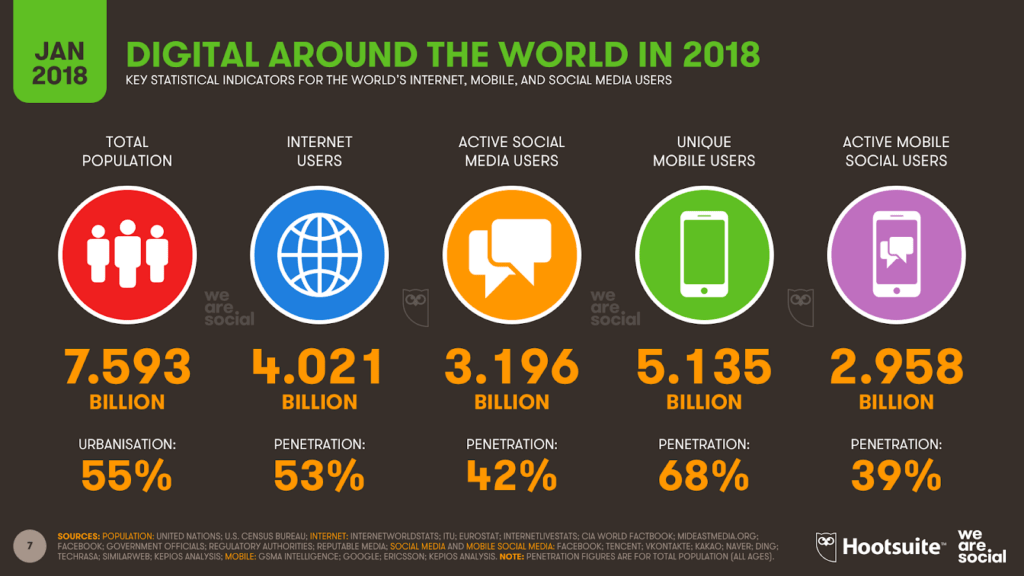
Amidst the chatter, social media users discuss their experiences with a particular brand. People talk about their positive and negative experiences.
Usually, the negative experiences go viral to serve as a warning to potential customers. Why?
Because 49% will tell their friends not to use the business and 34% would take revenge by posting their experiences on social media.

The social media landscape has evolved a lot since 2017. Here are some of the recent developments:
An adjustment in the Facebook algorithm.
The new age of leveraging LinkedIn for influencer outreach
The launch of Twitter’s 280-character limit
The growth of live video via Facebook and Instagram
With a lot of social media platforms today, you need an effective strategy to better engage your audience.
Let’s discuss a few social media strategies you should pay close attention to if you want to build a reputation online for your business:
Facebook has been at the forefront of social media. With more than 2 billion active monthly users, there’s a need to improve their algorithm.
A recent announcement by Facebook to deemphasize brand content has been disturbing for most marketers online.
Even though the specifics of the update aren’t clear enough and it’d take a while to fully take effect, Facebook is supporting brands with resources that will help them to weather the new algorithm storm.
In the end, Facebook is all about bringing people closer together.

As a result, one of the steps you should take is to stop baiting. In other words, stop cajoling users to click on your post or ad. Simply deliver value and they’ll act on it.
Yes, Facebook frowns at social media tactics they see as “engagement bait.” Such practices such as excessive “tag-a-friend” or “like this post if you___” content, which to Facebook, is more or less a cheap attempt to game their algorithm.

Secondly, don’t post too many links. Yes, Facebook is actively putting its foot down against businesses and marketers who are posting too many links in their posts.
If you want your post to show up in followers’ feeds, don’t be too concerned about linking to your blog or landing page. Facebook doesn’t seem to like it.
This is yet another powerful way to use social media to improve your online reputation as quickly as possible. Because you can’t do it all alone. You need the help of others.
Tagging others has become critical to reaching new people on just about every social media network. It’ll also boost your exposure.
In the same way that posts with Hashtags garner more engagement, tagged posts would earn a lot of attention too.
Identify a key player in your industry or someone’s audience you’d love to tap into, then tag the influencer. It’s easy and you might open up floodgates for more traffic and brand awareness.

To serve as guides, review sites are platforms where current or past customers of your business can share their experiences.
This could be positive or negative. And in some cases, it could be false reviews aimed at destroying your business reputation.
Examples of review platforms are Google My Business page, Facebook, Amazon, Yelp, Yellow Pages, Better Business Bureau, etc. These websites serve other functions related to your business.
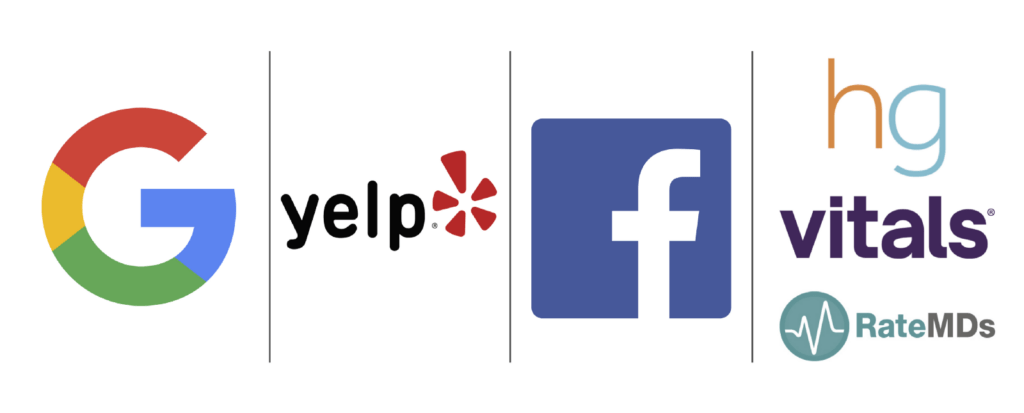
Online reviews are so important. Brands spend a lot of money to incentivize customers to write honest reviews about them.

These are blogs that share content related to your business. Furthermore, these blogs have built a high level of trust with their readers and target audience.
Creating and publishing a useful and positive post about your business can be a boost for your brand while a negative post can be a problem.
Popular figures in the society influence the choices people make.
An influencer could use their blog or social media account as a platform to give their views on many issues. When they say something about your product, people tend to listen.
What does your business website tell a potential customer? Does it look empty? An empty website can be suspicious because your visitors are denied any chance of knowing more about your business.
Your website should give a positive impression of your products and customer support. This could be through testimonials and replying to comments by visitors.
Action steps to build and protect online Reputation
Having mentioned platforms that influence your business’s online reputation, I’ll show you how to manage your online reputation on these platforms.
These are some of the steps you need to take for effective online reputation management:
One of the best ways to have a good reputation is to actually earn it. When you provide a poor service to customers, no level of online reputation management will help your business.
The first step is to build trust with your customers. One way to achieve this is through great customer support.
This starts by providing the right information to your potential customers through your website and other online properties.
When Whole Foods CEO, John Mackey wrote an op-ed about President Obama’s Healthcare reforms in the Wall Street Journal, it caused a controversy online. In fact, this led to some customers creating boycott groups of the brand.
However, the company didn’t neglect the controversy. They released a statement explaining their position to mitigate the problem.
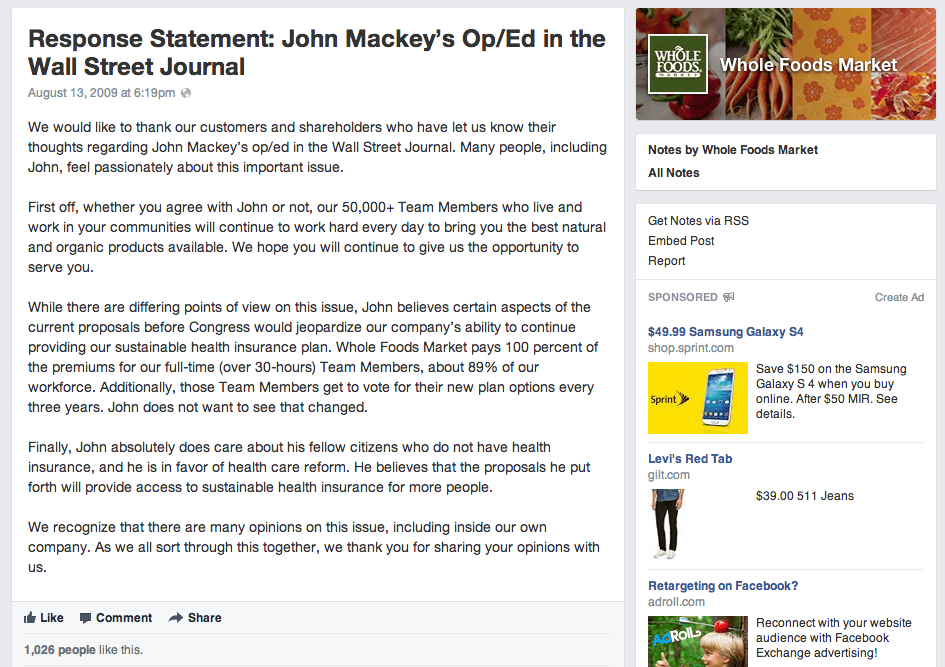
No business is perfect. And your customers can understand when there’s a mistake. However, your business needs to admit these issues and take actions on them.
Another information potential customers want to know is that you’re following the right practices in your business. They want to know that your employees work under the right conditions.
Many businesses see a website as an afterthought. But this is one of the most important platforms you can have for your business online.
This helps you to put out the message you want people to have about your business.
However, your work doesn’t end when you create a website. You have to update it regularly. You can do this through a blog.
Blogging brings more traffic and leads to your website. In fact, HubSpot found that companies that published more than 16 posts monthly get 4.5 times more leads than those that published 4 posts or less.
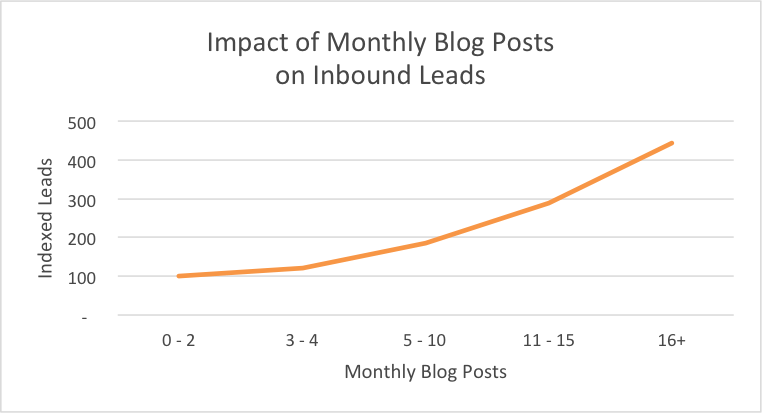
With a blog, you can provide information that a potential customer needs to know about your industry.
You can also advise them on how to use your products. Likewise, you can publish your promotional offers on your blog for current and potential customers.
Customers can send their comments on your posts. Sometimes, this could be praise for your business, an inquiry, or even a complaint. You should reply to those comments accordingly.
One way to build a great online reputation is to have your customers do it for you. How do customers use your product? How does your service improve their lives?
You can encourage customers to take pictures and videos of them using your product.
You can feature these pictures on your website and social media pages. This generates good publicity for your business.
It’s also a way to convince potential customers to buy your product or employ your service. Airbnb is a popular company with its combination of user-generated content and influencer marketing.
For the Super Bowl LI, the home rental company provided a mansion to Lady Gaga in Houston.
She posted it on Instagram and it went viral. It was featured on many news sites and generated a positive reputation for the company.
With these type of sponsored posts, Airbnb has been able to generate 18 million likes and 510,000 comments with an engagement rate of 4%.

Influencers can have a big impact on how people see your business. Generally, there are 2 types of influencers: Those who are popular to the general population and industry experts.
When you send your products to experts, they can use it and tell their loyal followers what they think about your product. These people have a high level of trustworthiness and a recommendation from them would send some eager customers to your business.
This is an example of Samsung Galaxy S9 review on TechRadar. Smartphone manufacturers send their devices to big tech blogs to test and post reviews. This increases the smartphone and brand’s popularity.
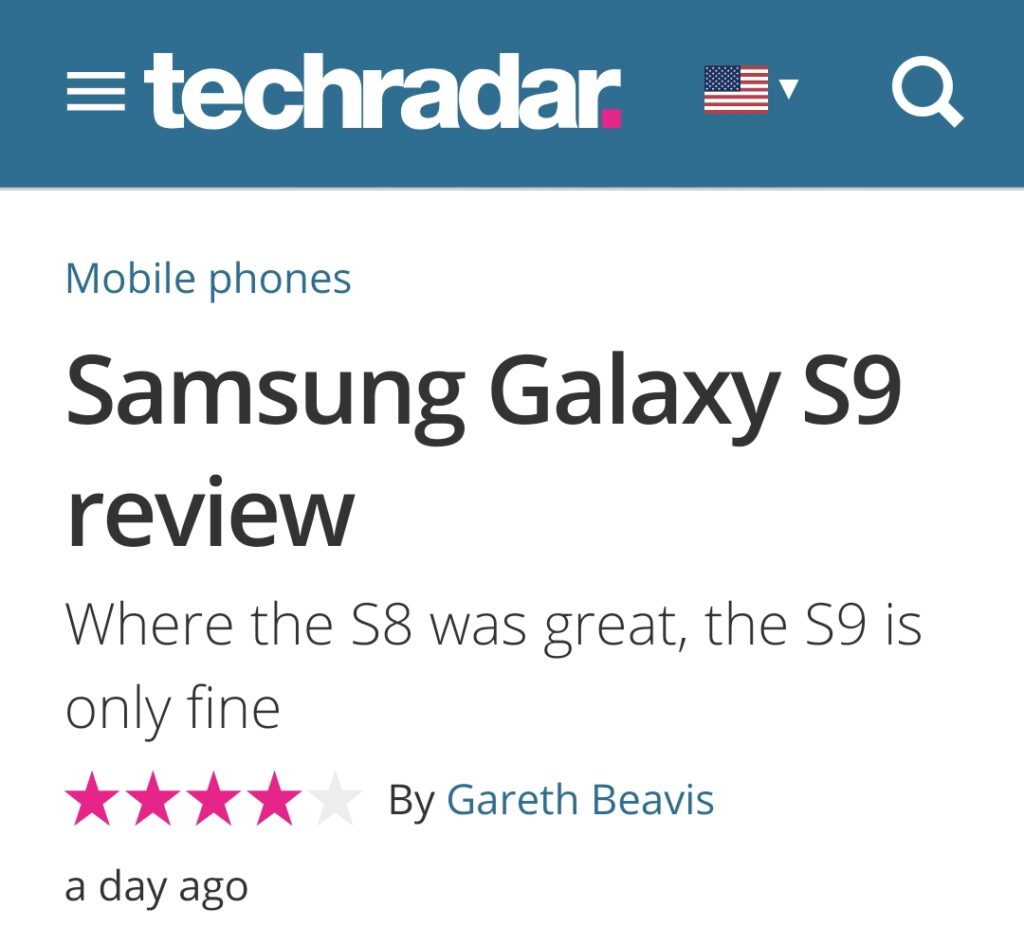
When people search for your business, the most popular pages will be at the top of the search results.
Are these pages the ones you want a potential customer to see? Do they say good things about your business?
You can use search engine optimization to control what people see when they search for your business online. Some of the steps you need to take are:
i). Keyword research: You need to find the keywords with high search volumes that people can use to find your business.
You should concentrate more on branded terms. When you search for your business name, what results show up?
You can also combine your business name with your business keywords to see their search results. One tool you can use for this is UberSuggest. It will show you the search volume, SEO difficulty, and other details about your keywords.
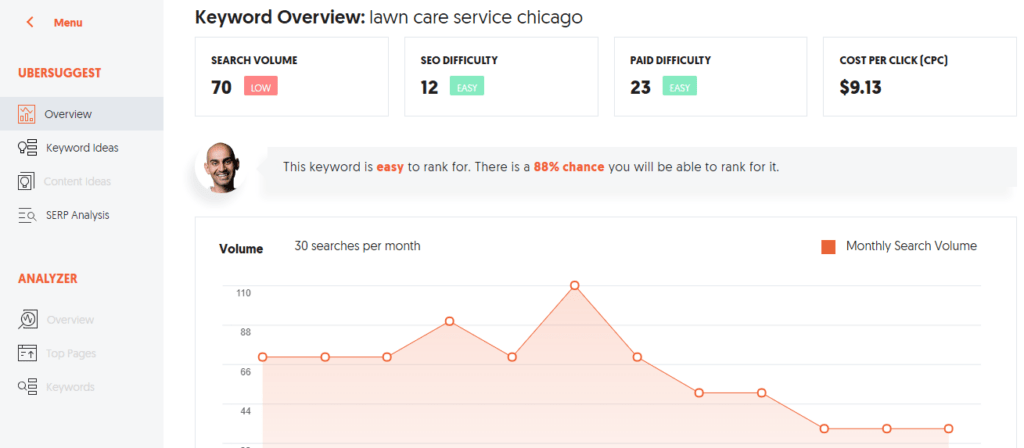
ii). Write long-form detailed content: To dominate search results for your brand, you need to write content that is more detailed and have a better chance of ranking high.
Backlinko found in a study that an average page that ranks at the number 1 spot for a Google search result has 1,890 words.
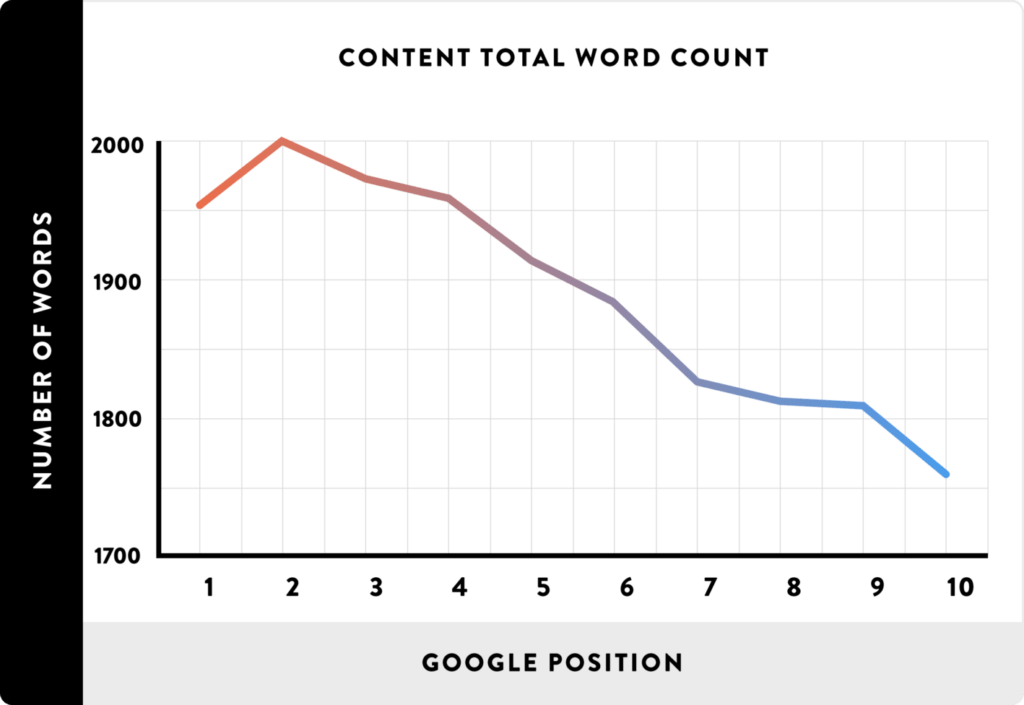
By writing detailed content, you provide more value to your visitors and also rank higher. With this, you can build trust and convert more visitors to customers.
Social media is one of the biggest platforms you can maintain your reputation. Or lose it. Therefore, it’s a necessity to track your brand’s mention on social media. This way, you’ll know what social media users are saying about your business.
With this knowledge, you can take actions on both positive and negative comments about your business.
However, it’s almost impossible to track these mentions without tools. One of such tools you can use is Mention.
This tool will search online and find the mentions of your business on social media and other sources online. It becomes easier to address customers’ complaints before they escalate into ugly situations.
You can also track mentions of your competitors to see where they’re getting positive and negative comments.
To use the service, you have to set up an account.
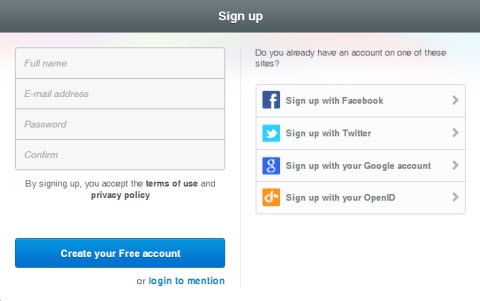
After this, you can set up to track mentions. You can track as many as 500 mentions with its free option and as many as 3,000 mentions with its paid plan.
You can also set up alerts for your business name or a keyword mention. It will be sent to your email address or the app.
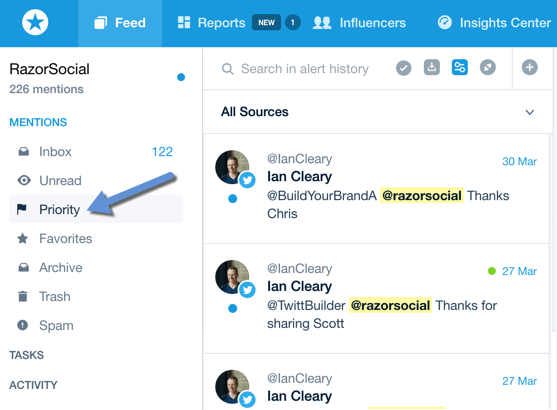
This is an example of a business that took a wrong step in addressing a customer online. Addressing a customer in an aggressive way can go viral and discourage potential customers.
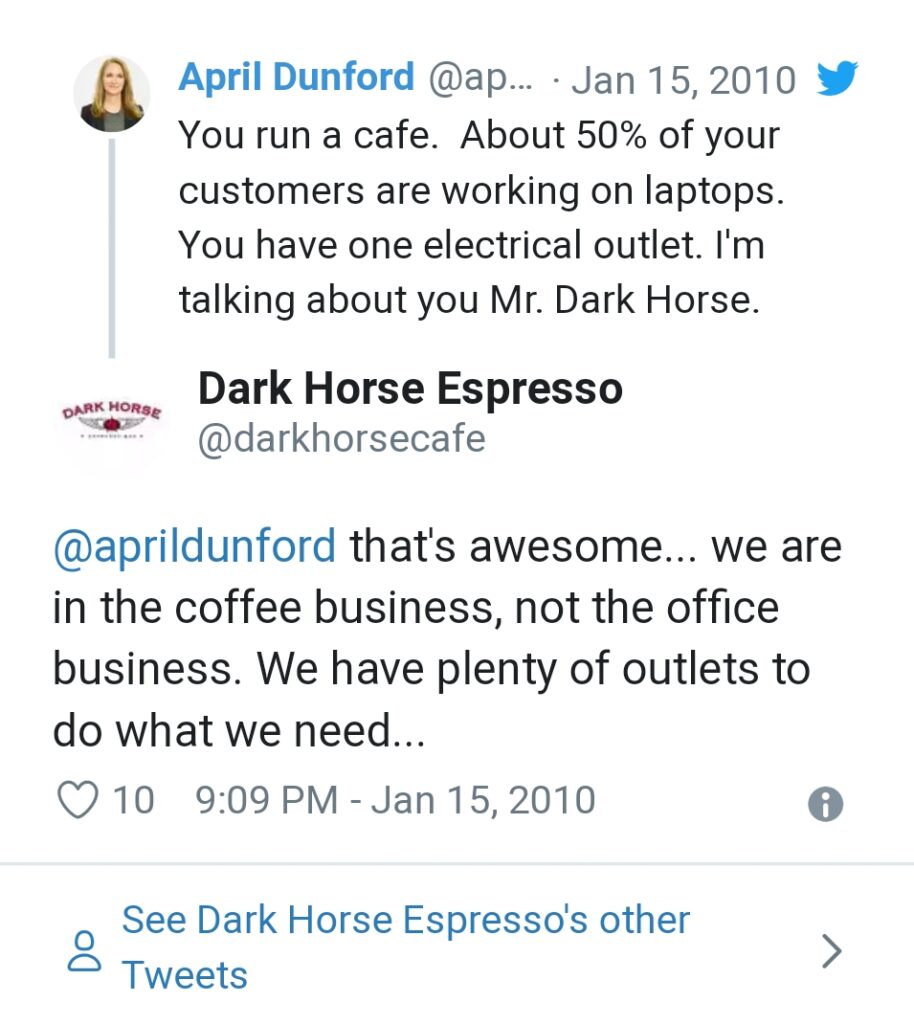
For the good part, what better example to use than Peter Shankman’s story on Twitter? Shankman, an angel investor, was about to board a flight.
He tweeted it, jokingly, that he needed Morton’s steak at the end of his flight. And behold, a steak was delivered to him at his destination.

This is a step that has made the business popular over the years. And in an attractive way.
When some Twitter users suggested it was because of his large Twitter follower base, Shankman showed how Morton’s had always appreciated customers on the social media platform.

This is how a business can improve its reputation on social media.
Reviews are a way people use to judge your business operations. Potential customers use it as a source of information before deciding to buy your product.
According to a study by BrightLocal, 85% of consumers trust online reviews as much as personal recommendations.
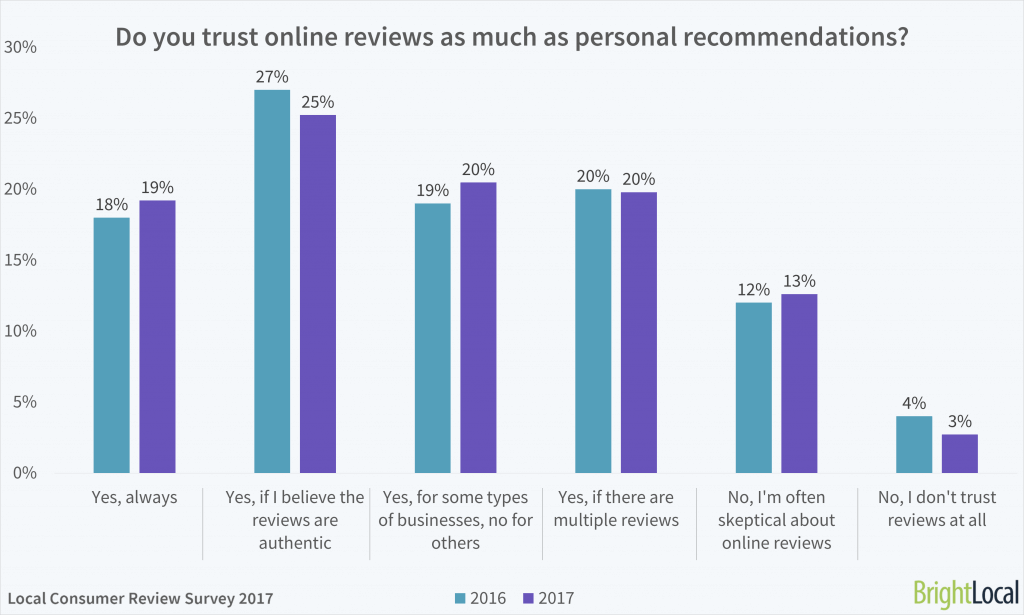
This is why you must use it as a means to maintain a good reputation. For your business, you want all reviews to be positive. But this is almost impossible and it looks unnatural.
Negative reviews can be an opportunity for your business. First of all, some customers don’t leave negative reviews or complaints, they just go to your competitor’s website.
For customers who leave negative reviews, sending a reply addressing the issues raised could encourage them to do business with you next time.
Another advantage of replying reviews is that it can show potential customers that you care about your customers and you want to help make their lives better.
However, it’s important to never insult a negative reviewer just because they hate your service. An example of this was Amy’s Baking Company. A reviewer on Yelp had a negative review of the company.
Rather than seek to understand the reviewer and promise a better service next time, the business owner insulted the reviewer and labeled them as the competition.
This got to the news and spoilt the company’s reputation. Currently, the company has an average rating of 3 stars out of 5.
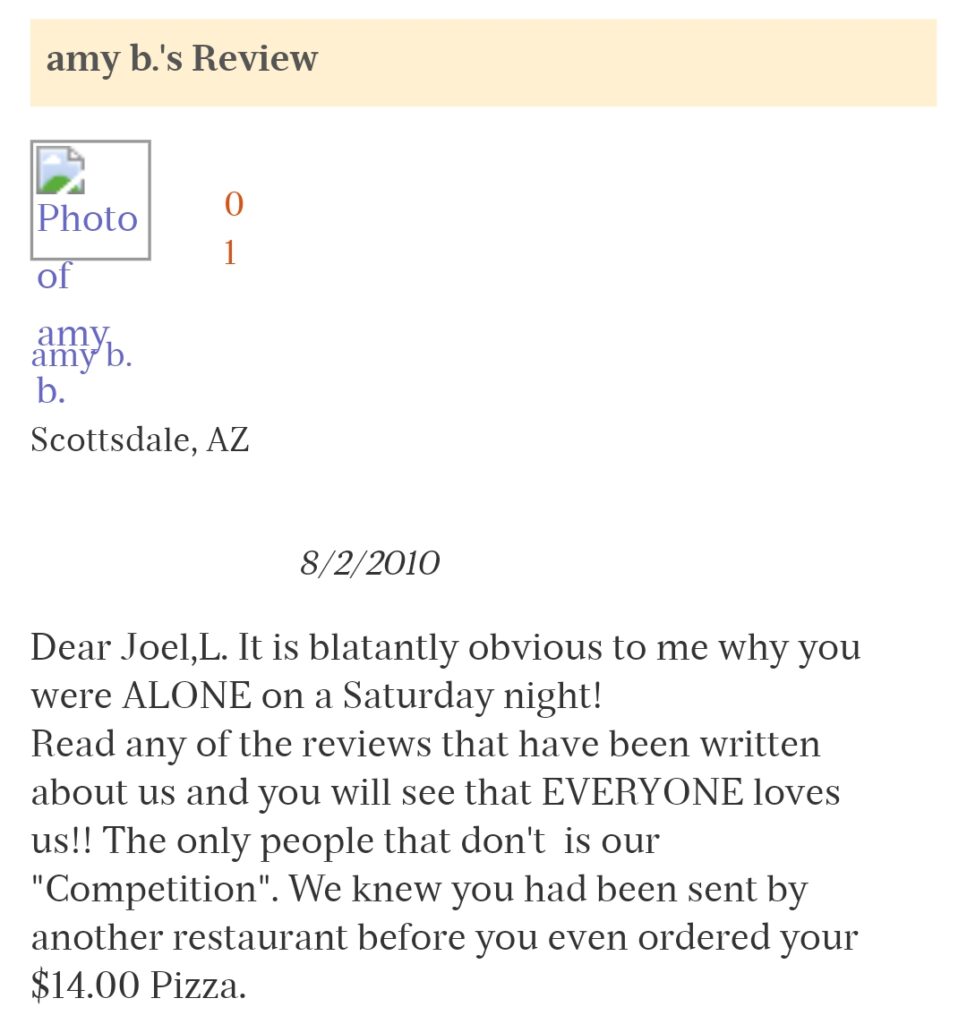
The reality is that a competitor may write a negative review. But insults on the reviewer will just scare your customers away — which is your competitor’s aim in the first place. Your reply should display class and a potential customer will understand why you have so many positive reviews.
Apart from customers leaving reviews when they feel like it, you should constantly seek feedback.
This will give you an insight into your business performance. You can make changes where necessary to improve your business and consequently raise your online reputation.
To encourage feedback, you need to give your customers many avenues to get across to you.

There should be a live chat or contact form on your website through which customers or potential customers can ask a question about your service or leave a complaint while on your website.
There should be contact details like a telephone number or an email address that website visitors can use to send you a message.
You can also create customer surveys asking important questions about your service. Likewise, you can ask your social media followers what they think about your business.
This is an example of a live chat pop-up encouraging a conversation with website visitors.
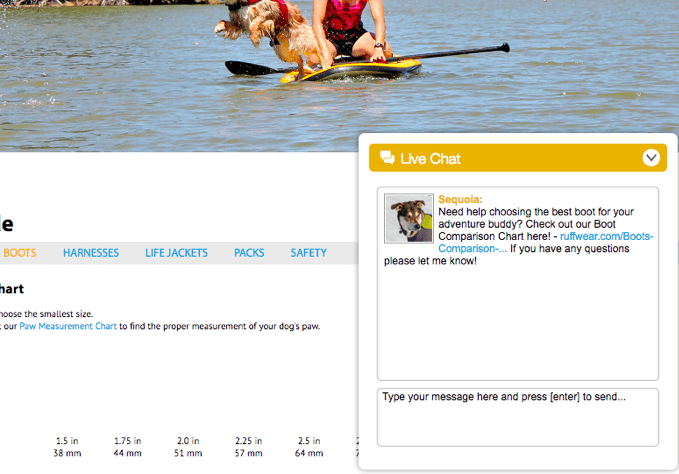
Managing your online reputation is not a one-time job. It’s a work continues for the duration of your business existence.
Therefore, there should be a system to help you follow up with people who will mention your business tomorrow, in a week’s time, or in a month.
To do this, you can set up alerts on different tools. Some tools you can use to set alerts for your business mentions online are Google, Mention, and BuzzSumo.
To set up Google alerts, go to http://www.google.com/alerts/.
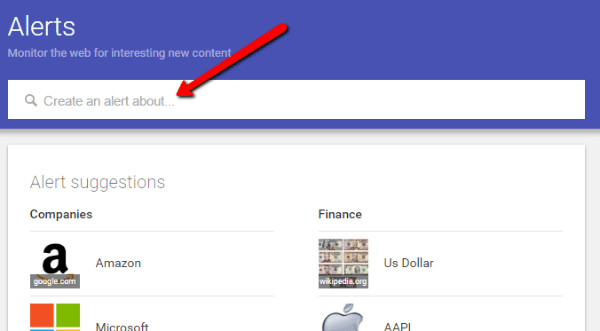
You can set your terms just like you use Google. Some common ways are:
Use the term “branded term” with the quotes if you want Google to alert you when those terms are used together.
You can use the site:yourwebsite.com search term for alerts of the term used in a particular website.
Use “branded term” + social media for alerts on pages including the specific terms and appearance of social and media.
When you’re through with this, you can enter the email address to receive the alerts. You can also set options for alerts like the frequency of alerts, sources, language, region, etc.
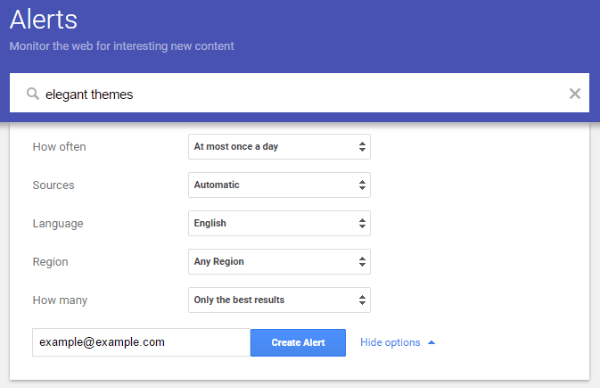
When you’re through, you can see your alert preview before clicking on the “Create Alert” button.
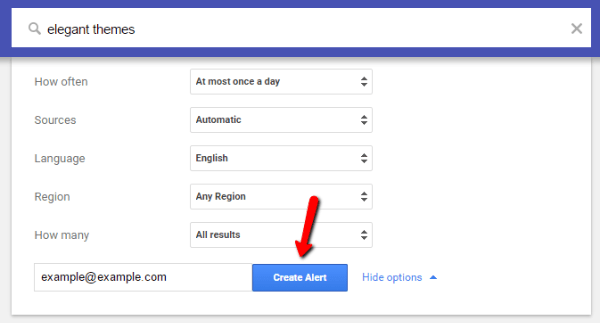
You can cancel your alert later if you want to. The only disadvantage with Google Alerts is that it may not provide as many details as you may want.
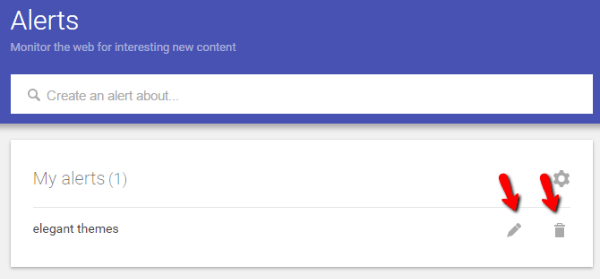
BuzzSumo is another effective tool you can use to track brand mentions. The tool provides 6 metrics you can track which are:
Brand mentions
Content from a website
Keyword mentions
Competitor mentions
An author
Backlinks
To create an alert for a brand mention on BuzzSumo, click on the “Brand Mentions” button.

This will lead to the page where you can enter the brand name and use other settings if you need them.
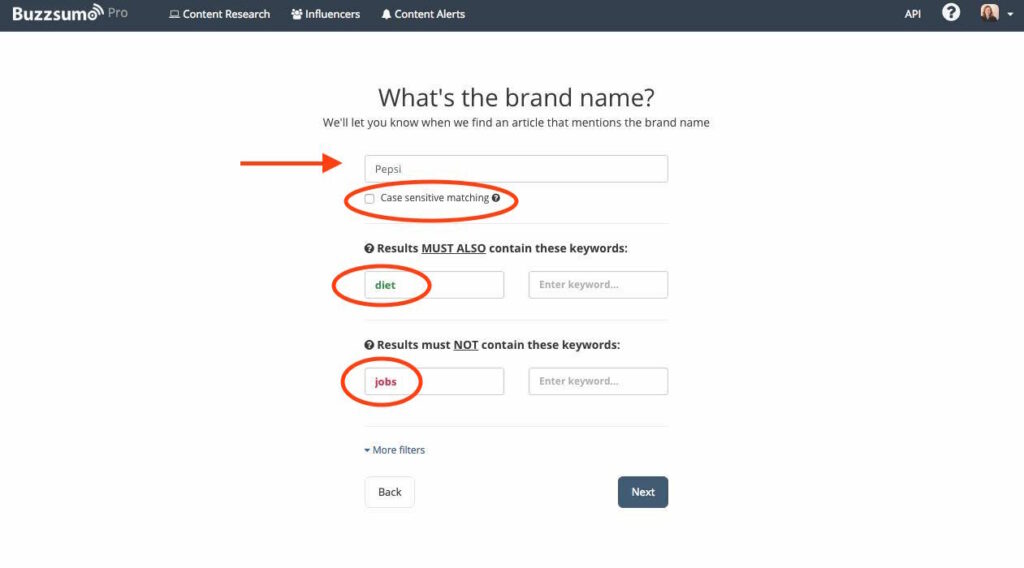
When you’re through, click on the “Next” button. Then you can pick options to receive your alert.
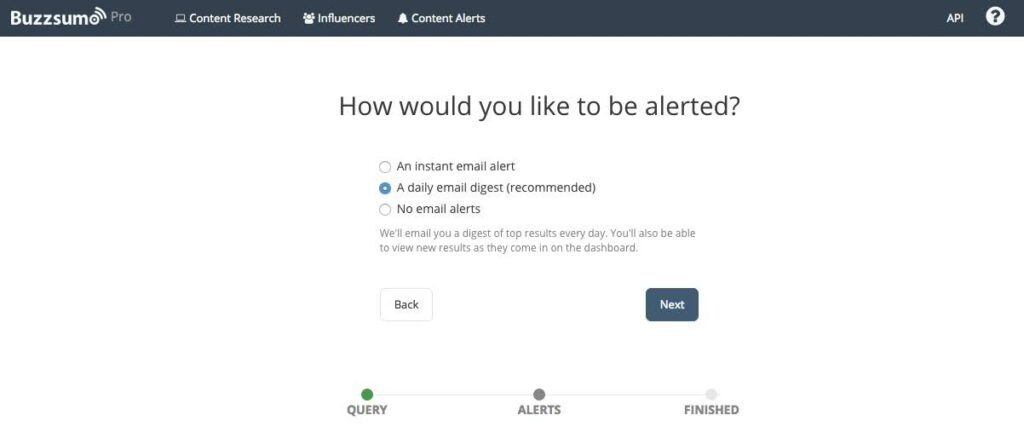
After this, you can finish your alert settings. You can always check your alert on the BuzzSumo dashboard whatever your alert settings are.
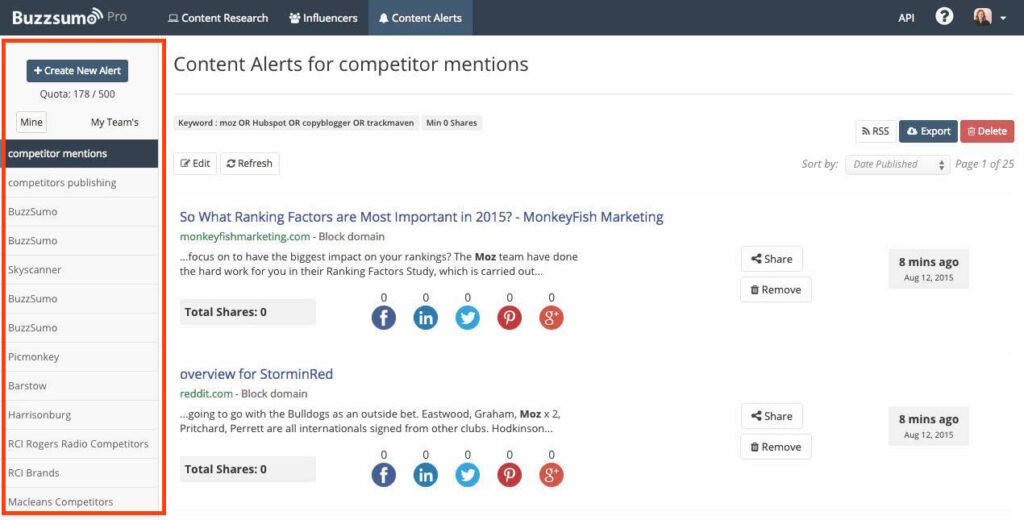
Managing your business online reputation could be the key to attracting more clients and growing your revenue from your online marketing efforts.
Give your ideal customers any doubt about your business, and they’ll switch to one of your many competitors. Creating and nurturing a good reputation means you can convert website visitors to your customers.
Are you ready to improve your online reputation?CEO, Keever SEO

As a lawn care and landscaping specialist, your work makes homes more beautiful…..

Implementing SEO for financial services is a ‘necessity’ if you want to attract new clients…

If you have invested a lot of money, energy, and time into your home care business…
©2025 Keever SEO. All rights reserved.